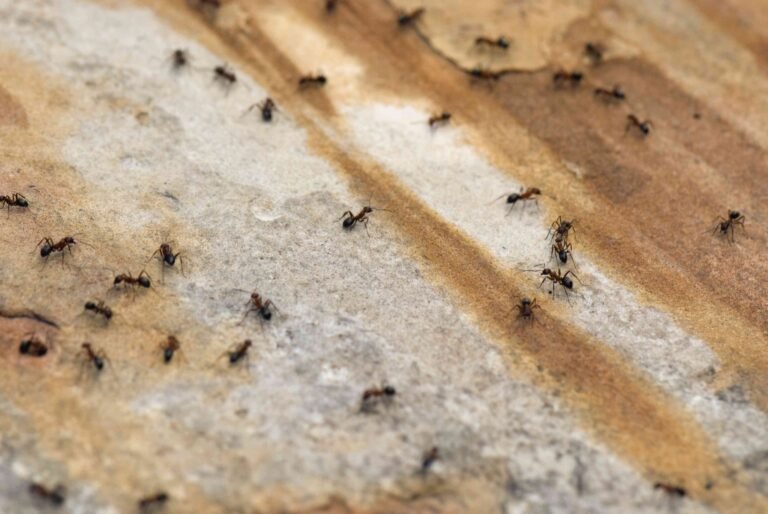:max_bytes(150000):strip_icc():format(jpeg)/GettyImages-91369080-4cba12c67cb34248b091c446571d36aa.jpg)
If the first sign of ants in your home has you reaching for the nearby cleaner, you’ve probably thought about reaching for the bottle of bleach under the sink. Bleach is a trusted household cleaner that turns out to be an effective tool for eliminating pests in your home.
We spoke with a certified pest control expert to find out if bleach is effective at repelling ants. Here’s what he recommends.
Meet the expert
Craig Sansig is a certified entomologist at Viking Pest Control.
Does bleach kill ants?
Yes, bleach kills ants when it comes into direct contact with the unwanted pests. The strong chemical solution in bleach is enough to kill ants, but according to pest expert Craig Sansig, it should be used sparingly and as a temporary measure because of its high toxicity.
“Bleach may be effective at killing ants on contact, but it is actually much more toxic than most pesticides registered for indoor use,” he says.
Although using bleach appears to be safer, its effects have not been evaluated and it is not registered by the EPA for use as a pesticide.
Why bleach works to kill ants
Bleach contains a powerful chemical solution that is strong enough to kill ants on direct contact. But that’s not the only reason this household item is effective at killing infestations.
According to Sansig, this powerful cleaner blocks the communication signals ants use, which helps to temporarily deter an infestation. Cleaning the surface where ants are being drawn with bleach will remove these pheromones and disrupt their ability to locate resources like food or water.
How to Kill Ants with Bleach
It is important to note that while bleach may be effective in killing the ants you see, it cannot completely eliminate the problem, i.e. other ants in your home.
You will need to contact a pest control professional in your area to completely eliminate the ants or find a homemade way to remove ants from your home.
- Prepare bleach: Some experts recommend diluting bleach with a small amount of water, while others say it’s best to apply it undiluted. If you want to dilute your bleach, mix equal parts bleach and water in a spray bottle. You can also choose to pour the bleach directly onto the surface of the ants.
- Spray on affected area: Using bleach or bleach mixture on hand, pour or spray directly onto affected area.
- Kill ants: Leave the mixture on the area for at least five minutes before wiping away the dead ants with a damp cloth.
- Repeat: If you see more ants moving around the area or find another location with an ant infestation, repeat steps two and three until all the ants are gone.
Warning
Always use bleach with care by wearing gloves and keeping it out of reach of children or pets.
9 Effective Bleach Alternatives to Kill Ants
There are a number of alternatives to bleach that are effective at killing ants, including natural pest control methods. Here are some options to consider if you find bleach too scary.
- Ant bait trap: These homemade traps attract worker ants to a food source and infect them with a pesticide that they carry back to the colony and share, helping to kill the ants.
- Vinegar: The properties in vinegar will remove the pheromone trail that ants use to track food sources, forcing the ants to move away from that area.
- Essential oil spray: Similar to vinegar, essential oil sprays work to mask the smell of food sources by covering up pheromone trails.
- Citrus peel: Citrus fruits overpower the scent of the original food source and attract ants to eat the peels, which are rich in D-limonene, a toxic acidic oil that kills ants.
- Boric acid: When ants ingest this poison, they die.
- Diatomite soil: This powder contains an ingredient called silica, which can enter the ants’ digestive system and poison them.
- Boiling water: Ants cannot survive the extreme heat of having water poured directly on them, and water can also drown them.
- Fresh coffee grounds: Ants do not like the smell of freshly brewed coffee and this scent will drive them away from the area.
- Cinnamon: Ants do not like the smell of cinnamon because it is strong enough to mask the original food source and drive ants away from the area.
